I tried a seven-move stretching routine and it left me feeling limber after a long day in the office
This 17-minute routine strengthened my hips and helped me move pain-free
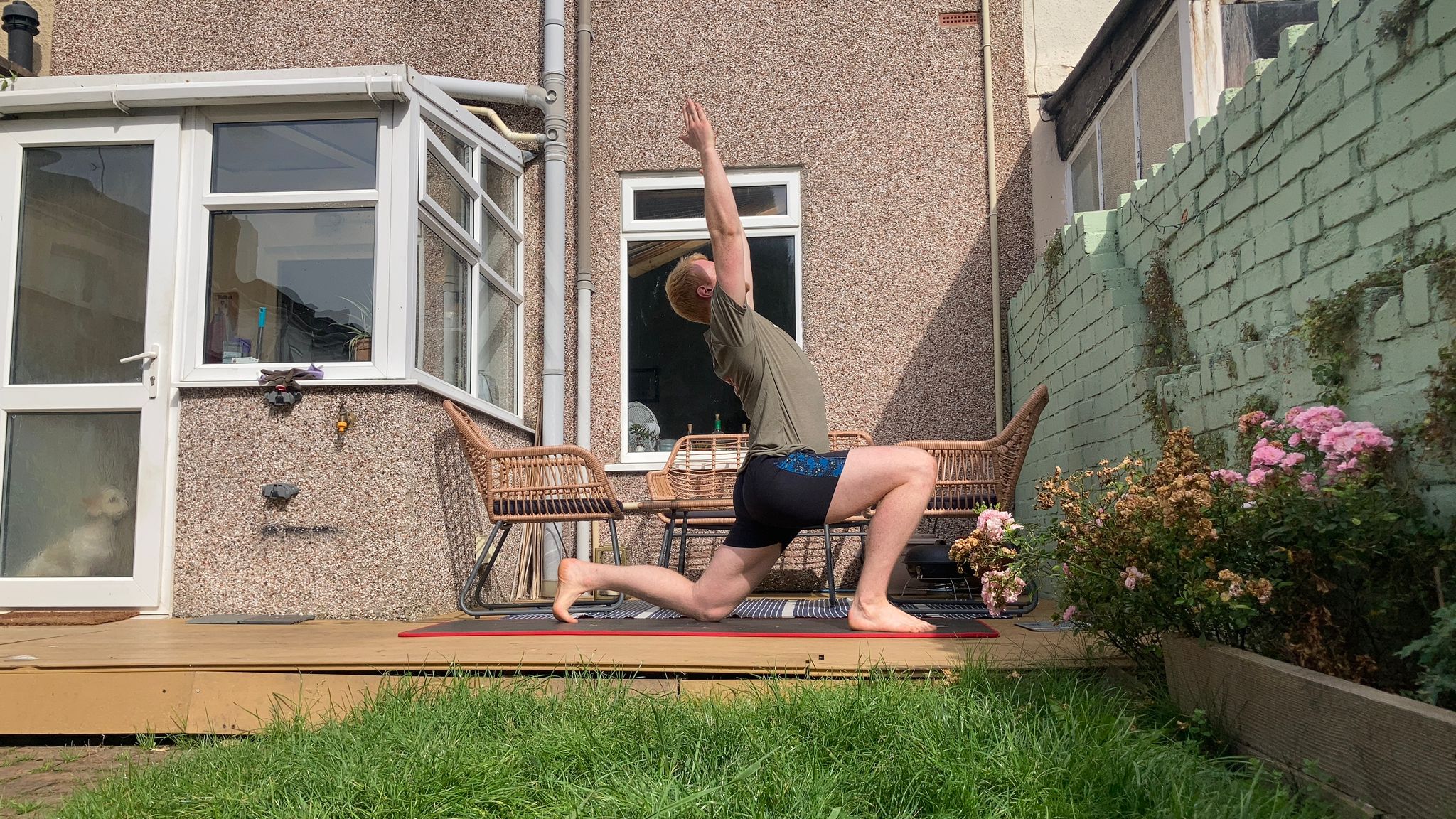
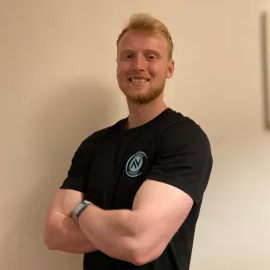
Even fitness writers struggle to stay active sometimes. Yes, I spend a lot of my time testing out new fitness equipment, but I also pass a lot of the day staring at a laptop screen. This leaves my body aching, with niggles in my neck, back and hips serving as a reminder that I've spent too long sitting down.
That's where stretching and mobility work can come in handy. Even a short session leaves me feeling more supple and less sore than when I started.
On my hunt for soothing routines, I recently struck gold with a video from bodyweight exercise expert Tom Merrick (aka the Bodyweight Warrior). The 17-minute session targets the neck, shoulders and hip flexors. In an attempt to loosen up after a long day in the chair, I gave it a go—and it's now a firm favorite of mine. Read on the find out why or follow Merrick's video below.
Watch the Bodyweight Warrior's stretching routine
My experience of the Bodyweight Warrior's full-body flexibility routine
1. Breath extensions
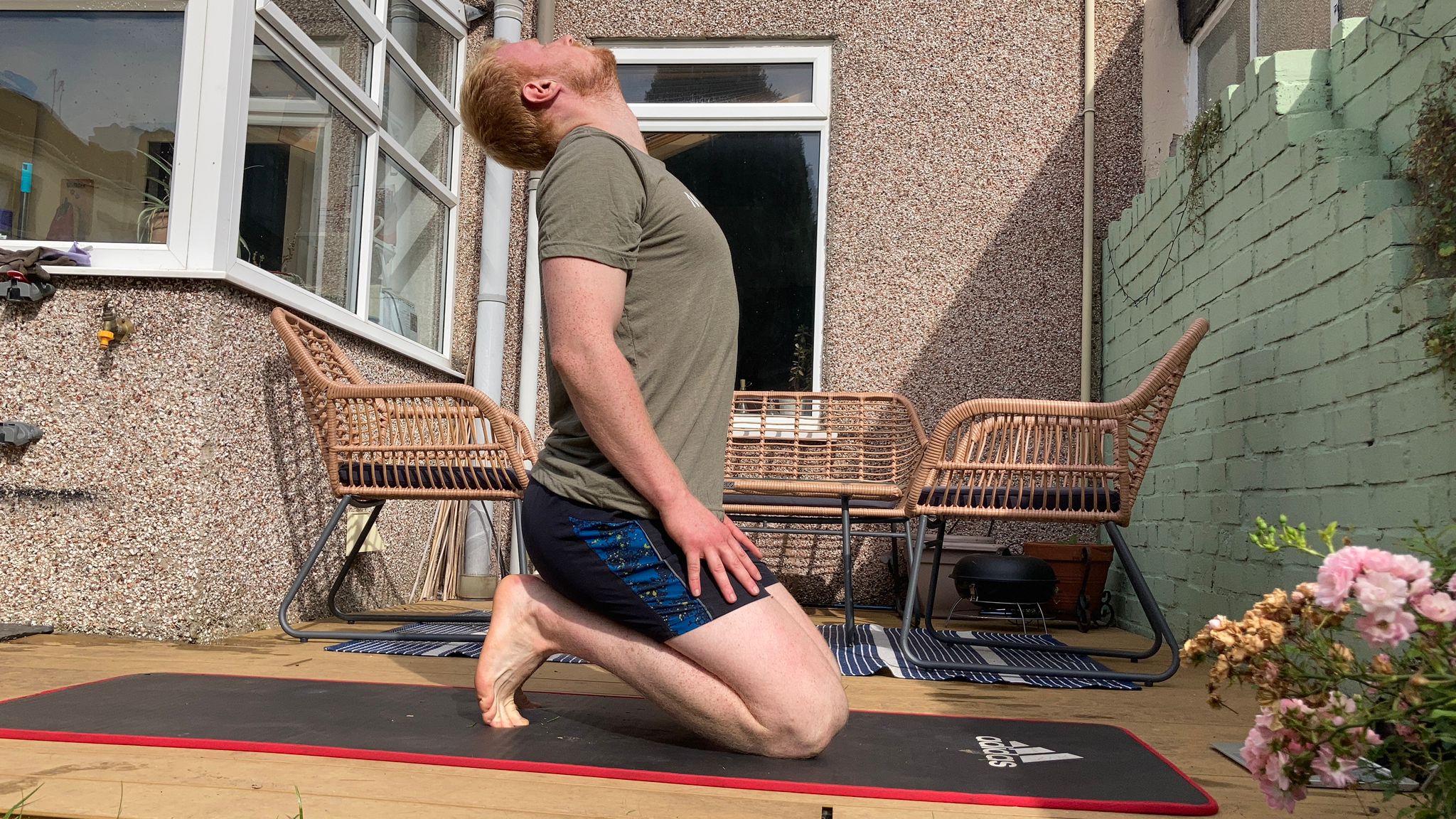
Merrick takes a dynamic approach to stretching exercises, which means that you won't be holding a static pose for long periods of time. Instead, you'll be incorporating gentle movements into the routine.
A lot of the movements are done in sync with your breath. I actually found that by timing my movements with deep inhales and exhales I was able to sink further into each stretch.
This was definitely the case with the breath extensions, shown above, which felt like they were gradually lengthening my neck and spine after I'd spent hours hunched over a keyboard.
There was also an enjoyable stretch down the back of my neck each time I dropped my chin to my chest, which I think all fellow computer-users will appreciate.
Get the Fit&Well Newsletter
Start your week with achievable workout ideas, health tips and wellbeing advice in your inbox.
2. Tabletop lifts
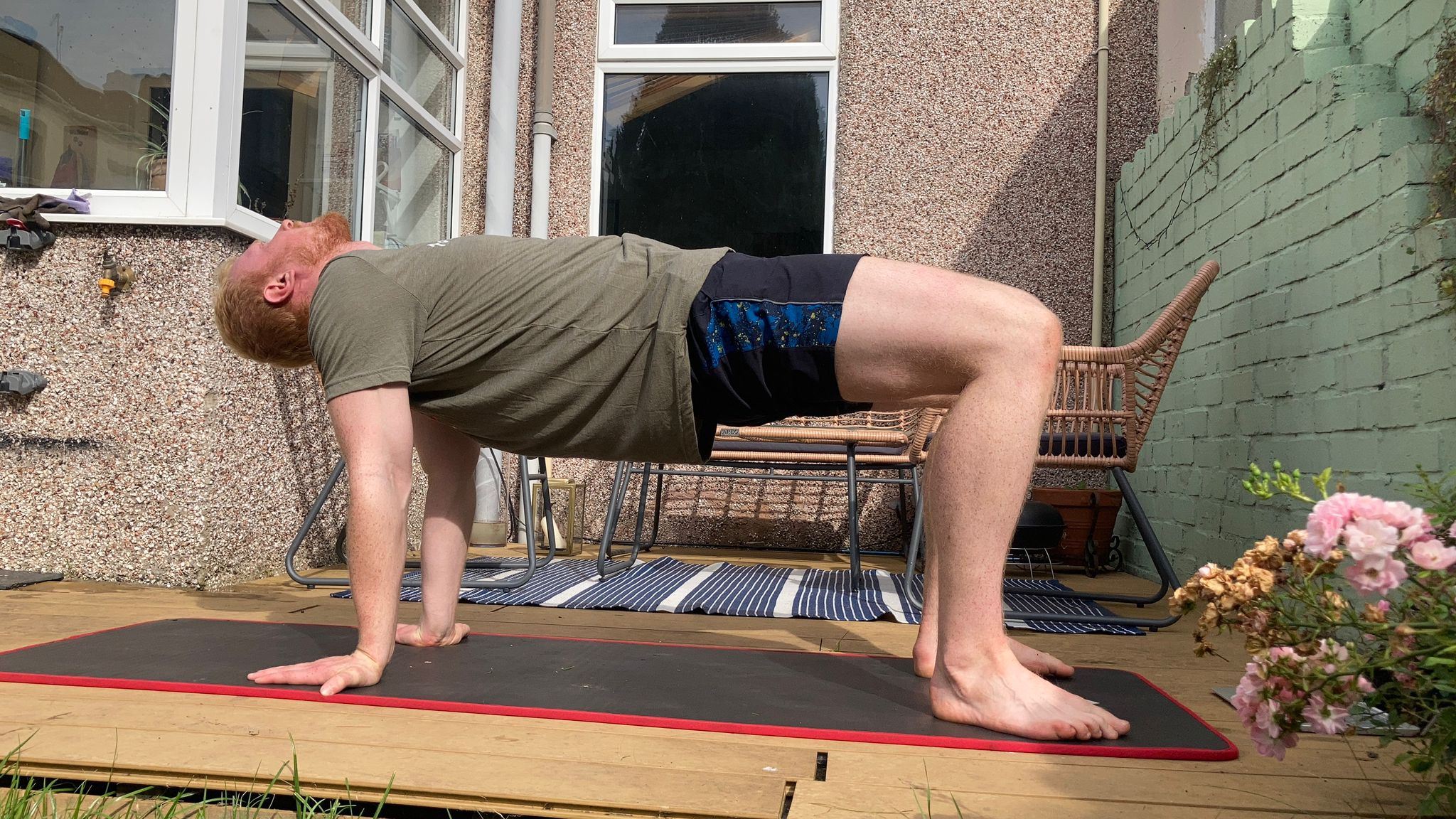
The shoulders and chest can feel a stiff if you're a desk user, as sitting hunched over a keyboard can cause the shoulders to round forwards and the chest to close in. But I need both body parts to be in top form for my CrossFit training, as they play a pivotal role in exercises like push presses and burpees. That's why I was happy to see this shoulder-focused stretch make an appearance.
I struggled at first to get into a picture-perfect tabletop position. But, as I worked through a few rounds of the stretch, I was able to gradually bring my hips higher to form a flat surface with my thighs and torso at the top of each repetition.
Once in position, I felt this stretch primarily in my biceps, but that may be due to the rowing machine workout that I did in the morning.
3. Hip 90/90s
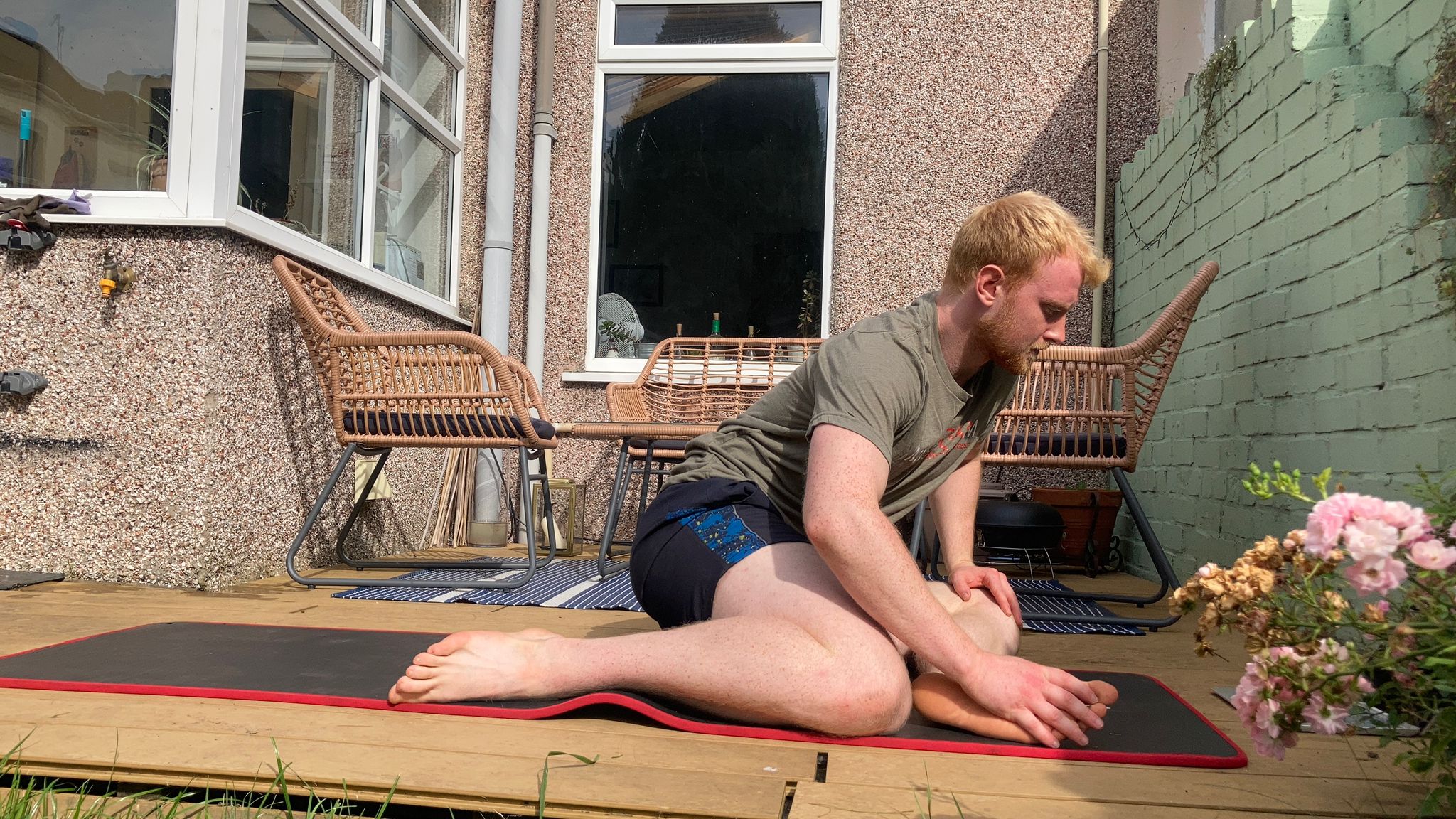
Spending hours sitting down can leave the hip flexor and hamstring muscles stiff and tight, causing pain in surrounding areas like the lower back and knees, according to the Harvard Medical School.
Movement is the remedy to these ill effects, and the 90/90 stretch is a great way to single the hip flexors out for special attention.
This wasn't a new movement for me—the 90/90 stretch is a staple of my pre-leg workout warm up—but Merrick's insightful form cues helped me improve my technique. I tried the "figure-four" variation he suggested, which provided a deeper stretch for my glutes (or backside muscles).
I was also interested to find that I could sink deeper into the stretch on my right side, signaling that I need to do more mobility work to balance out my body.
4. Elephant walk
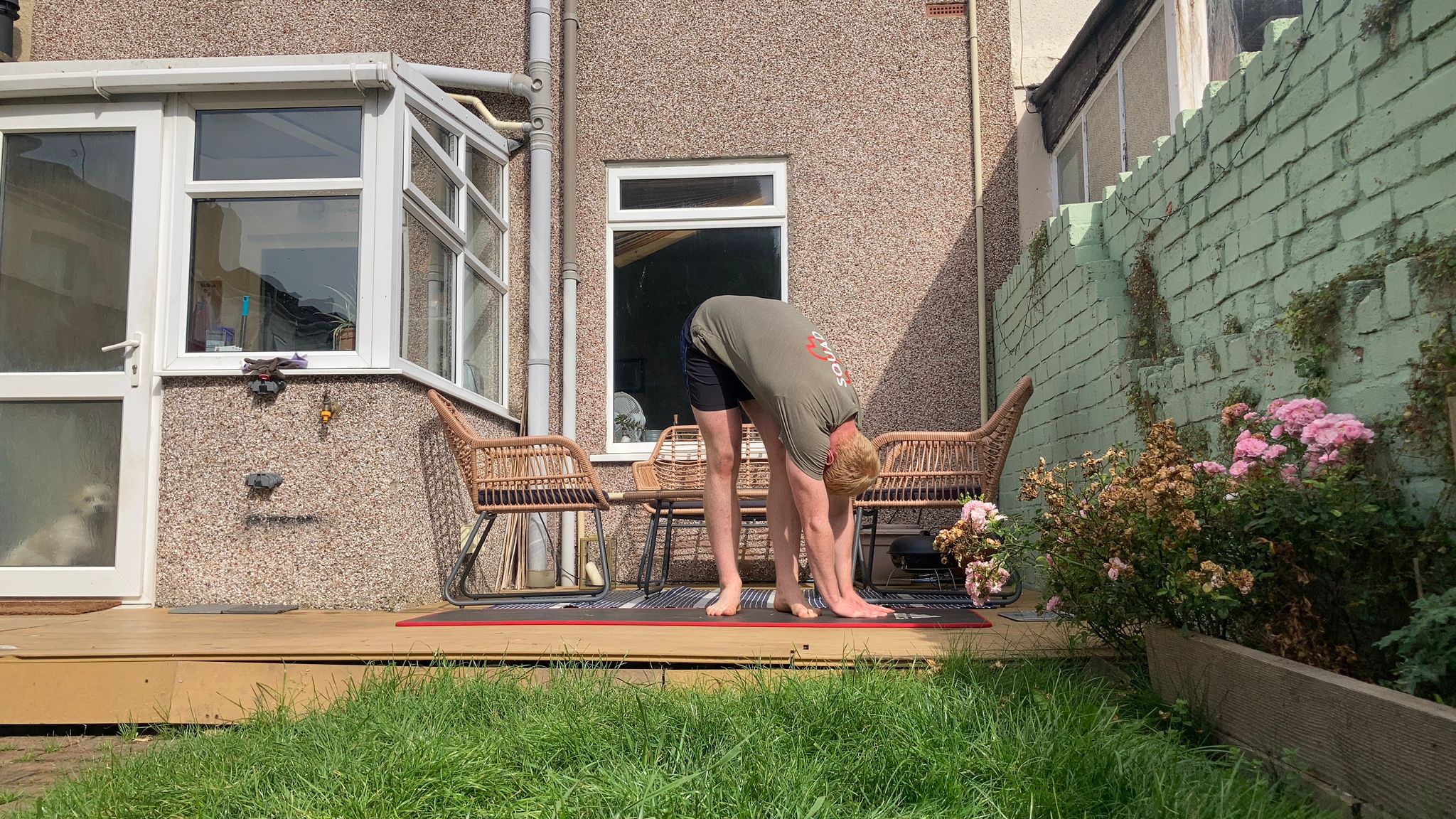
In the section above, I mentioned how the hamstrings (the muscles running down the back of your thighs) can suffer from long sedentary periods. Luckily, if yours are feeling stiff, Merrick is here to help.
Expect to feel a pleasant stretch through your hamstrings as you let your arms and torso hang towards the floor during this move. Then, by straightening alternating legs while twisting your body, you should feel an even deeper stretch in these leg muscles, as well as your spine.
5. Lunge reaches
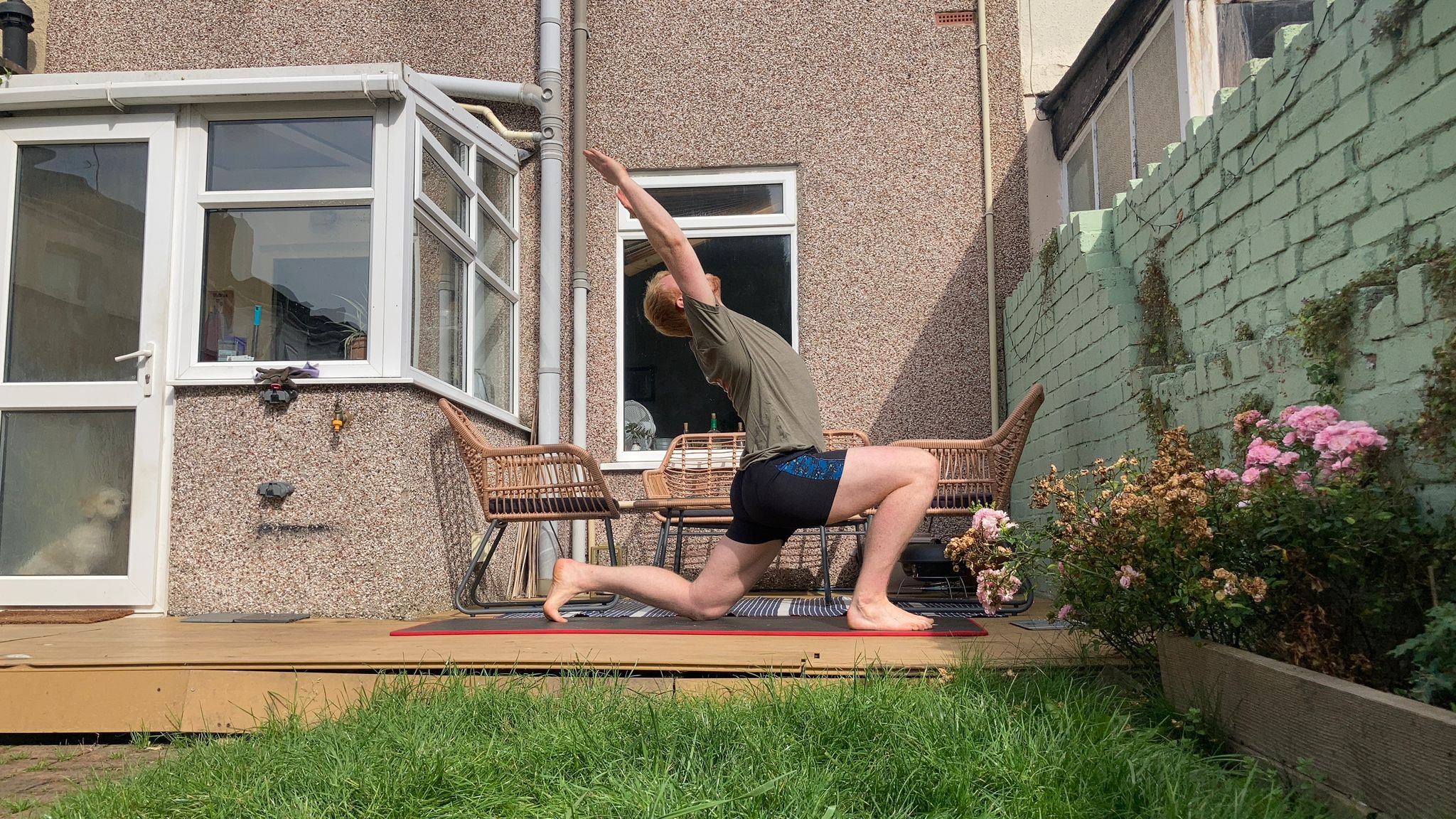
Another one for my long-suffering hip flexors; the lunge reaches saw me sink into a deep lunge and reach my arms above my head to open my hips, chest, shoulders and spine, before lowering them and returning to a standard lunge position.
After a hefty chunk of time spent writing, each body part felt grateful to be moving and stretching again, and I felt a lot looser after finishing a few repetitions of the exercise.
"Really focus on [your back leg] doing the work here. Keep the glute engaged as you come down then, as you push back up, think about pulling the back knee forward," says Merrick.
"[This means that] the hip flexors are doing the work, both in terms of the stretching and also a little bit of strength."
The hip flexor muscles play a pertinent role in maintaining good posture, while a weak set can contribute to lower back pain. So, if I'm given the chance to stretch and strengthen them, I'm going to grab it with both hands.
6. Single-leg frog stretch
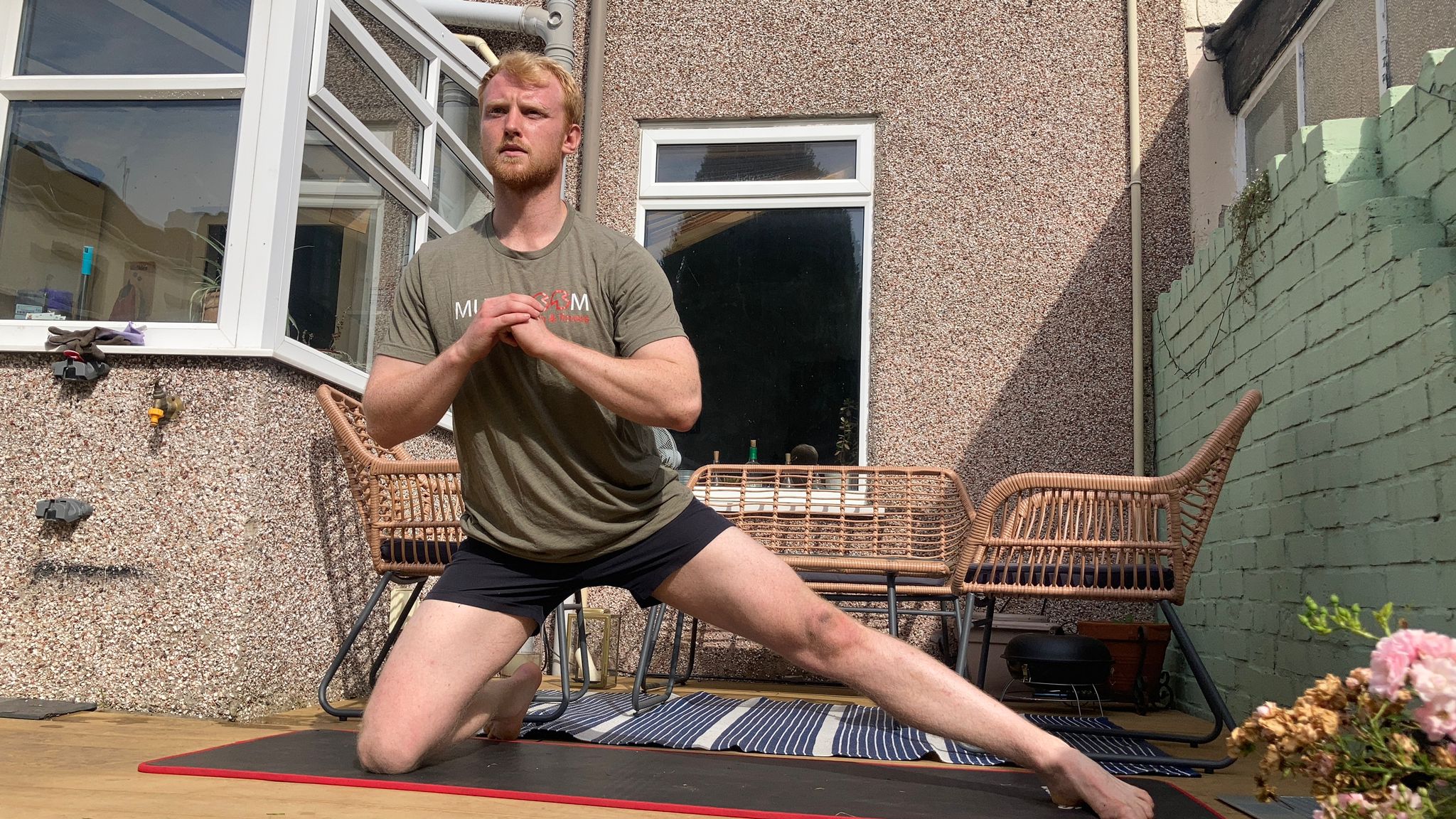
This was the movement that surprised me the most. Not only did it provide a nice stretch down the inside of my thigh, but the movement element also felt like it was hitting all the smaller muscles in my legs and hips that can be underserved by traditional strength training methods.
My usual leg-day sessions focus on compound exercises like squats and deadlifts. These are efficient moves, hitting major muscles like the glutes, quadriceps and hamstrings in one efficient hit, but it can still be good to mix things up every once in a while.
I felt like the single-leg frog stretch, with the dynamic hip extension added in, activated all the smaller stabilizing muscles like the abductors and adductors in my lower body—something that won't just help my athletic performance, but can also build a lower body that's more robust against injury.
I also noticed my forehead start to prickle with sweat towards the latter stages of each set, which was unexpected from a stretching session.
7. Kneeling extensions
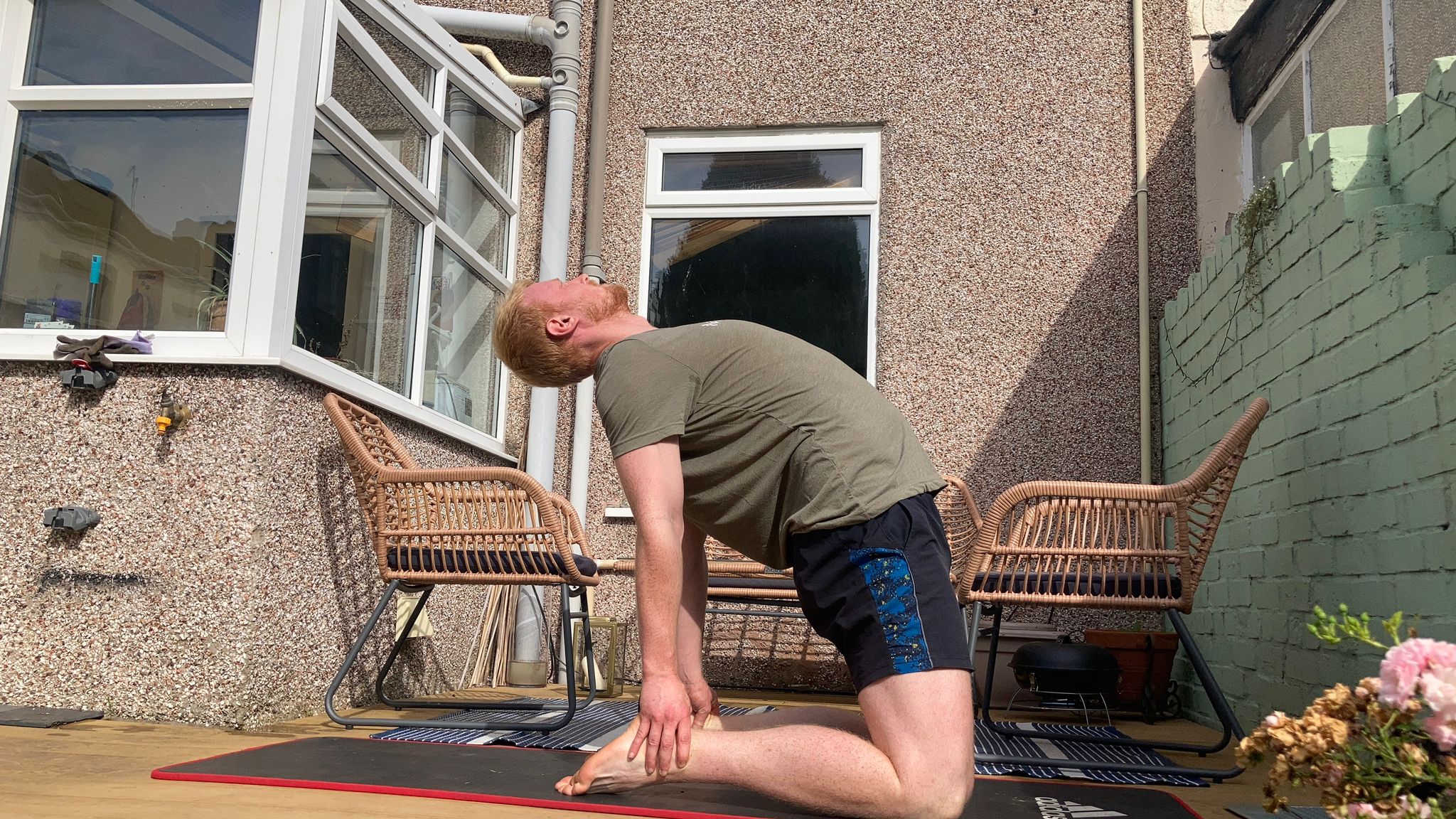
I was pleased with myself for being able to do the full version of this stretch, as it looked quite daunting to begin with. If this is a concern for you too, Merrick also provides some slightly less intimidating variations to try—and I'd definitely recommend giving it a try.
This is because the kneeling extension was my favorite stretch of the lot, opening up my chest and shoulders. I was also a big fan of the bonus stretch I felt in the quadricep (the muscles on the front of the thigh).
Would I do this routine again?
Merrick bills this as a "dynamic daily flexibility routine", and with just seven moves lasting 17 minutes in total, it's far from unfeasible. After finishing it, I had a bit of a play around by dropping into a squat and doing a few arm circles. And I was happy to find that everything felt a lot looser.
This session may not be a daily occurrence for me, but that's down to my lack of time and discipline. If I'm completely honest, my jam-packed routine of CrossFit, swimming, soccer and other sports means that I just want to crash out most evenings. As such, this stretching routine will be a fairly irregular (but much enjoyed) session for me.
If you want to try more mobility training, take a look at this four-move stretching routine I used to improve my squat. Or try our month-long Pilates for beginners plan.

Harry Bullmore is a Fitness Writer for Fit&Well and its sister site Coach, covering accessible home workouts, strength training session, and yoga routines. He joined the team from Hearst, where he reviewed products for Men's Health, Women's Health, and Runner's World. He is passionate about the physical and mental benefits of exercise, and splits his time between weightlifting, CrossFit, and gymnastics, which he does to build strength, boost his wellbeing, and have fun.
Harry is a NCTJ-qualified journalist, and has written for Vice, Learning Disability Today, and The Argus, where he was a crime, politics, and sports reporter for several UK regional and national newspapers.
-
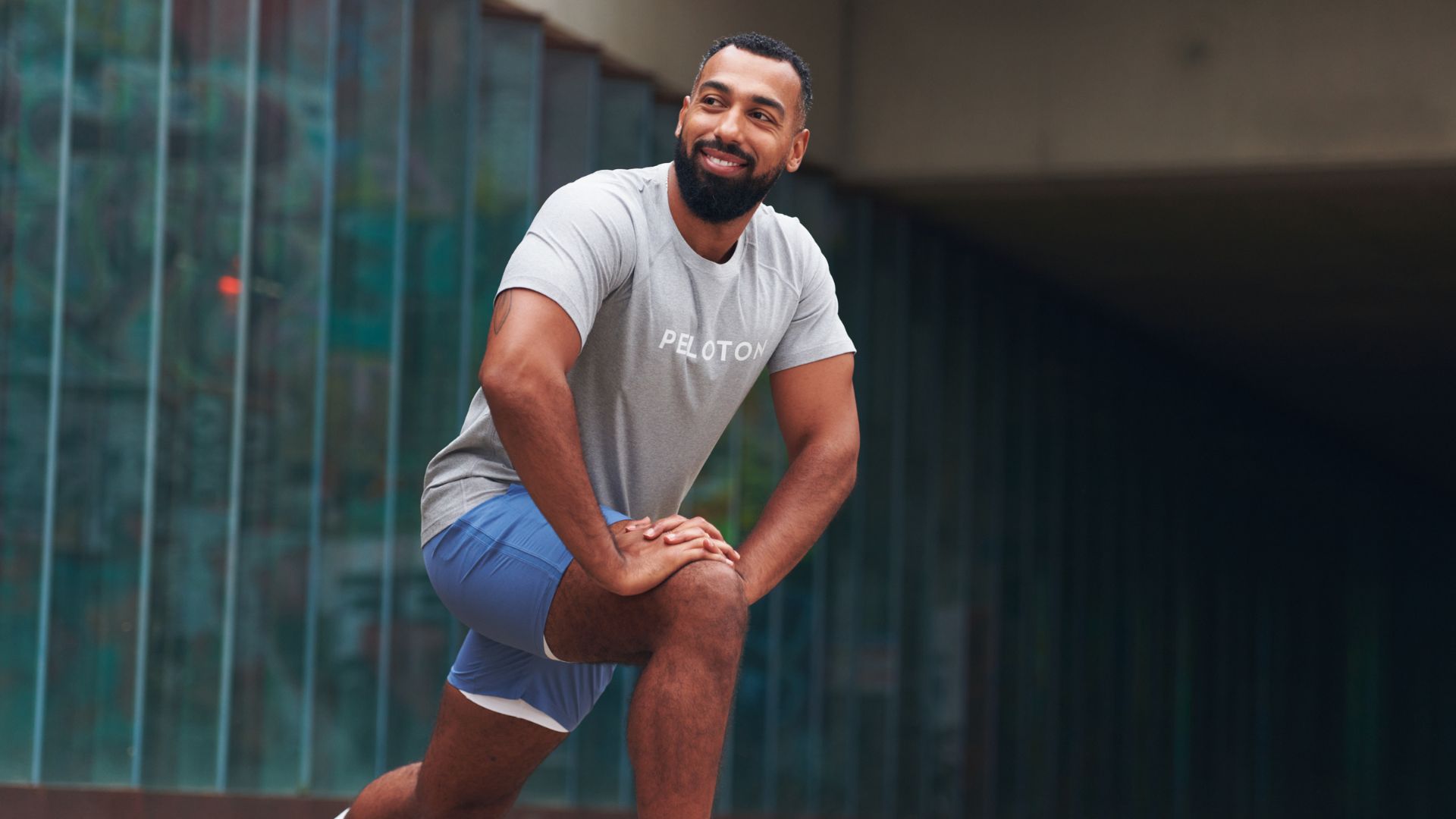 I had hip and knee pain when I ran until I did these two trainer-approved things
I had hip and knee pain when I ran until I did these two trainer-approved thingsPeloton instructor Jermaine Johnson swears by these two things to improve running performance
By Maddy Biddulph
-
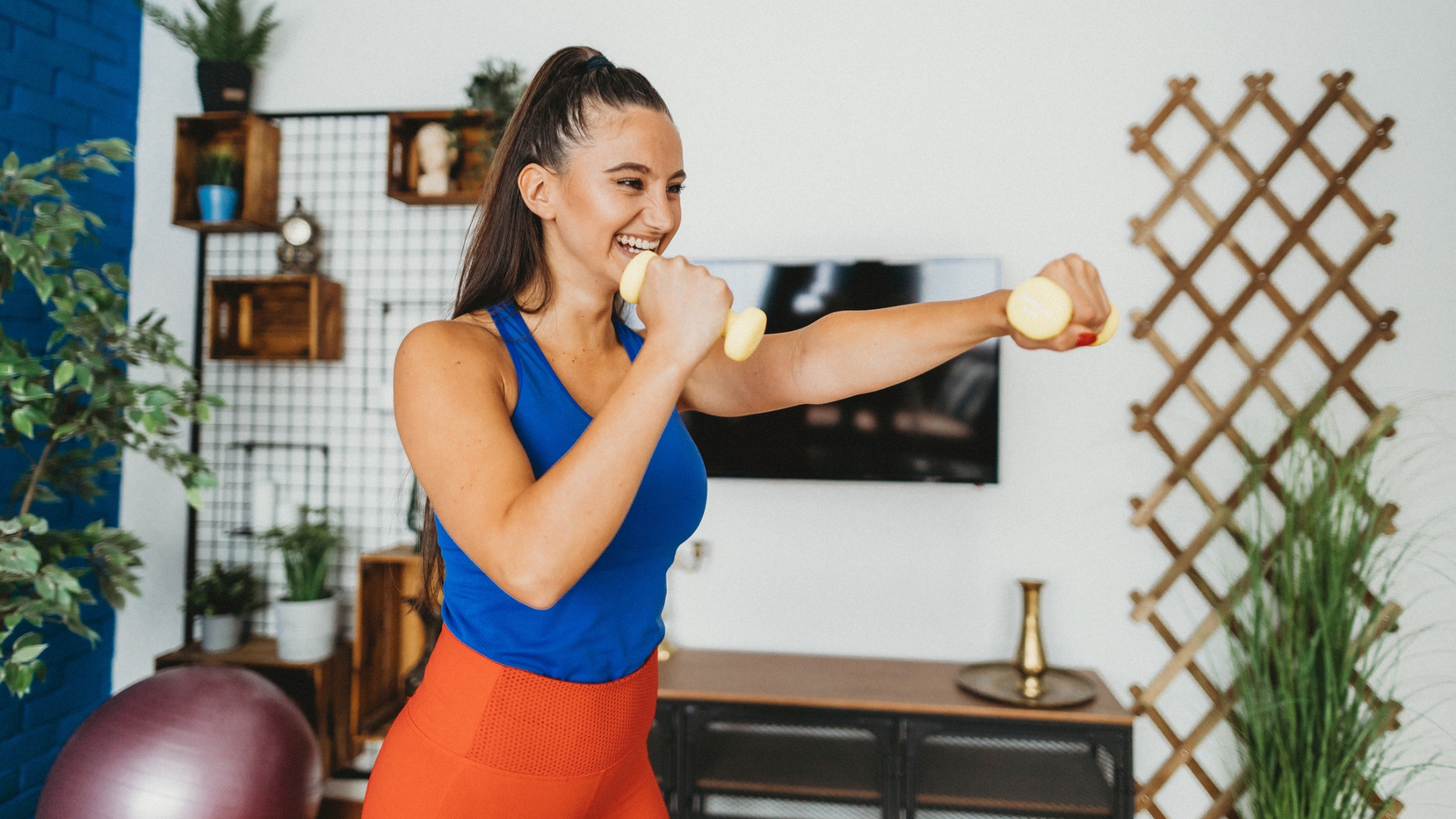 Improve your heart health with this joint-friendly, no-jumping cardio workout
Improve your heart health with this joint-friendly, no-jumping cardio workoutBuild cardiovascular strength without stressing your joints
By Maddy Biddulph